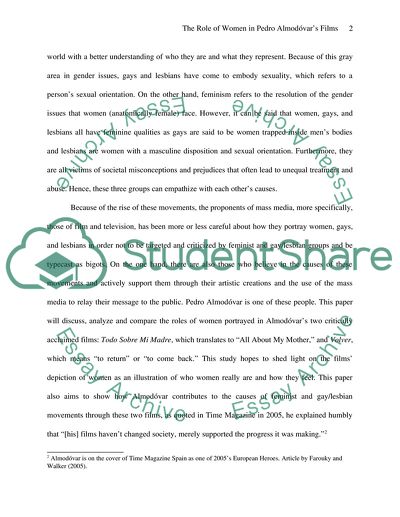Cite this document
(The Role of Women in Pedro Almodvars Films - Todo Sobre Mi Madre and Movie Review, n.d.)
The Role of Women in Pedro Almodvars Films - Todo Sobre Mi Madre and Movie Review. Retrieved from https://studentshare.org/visual-arts-film-studies/1708055-what-is-the-role-of-women-in-pedro-almodvars-films-all-about-my-mother-and-volver
The Role of Women in Pedro Almodvars Films - Todo Sobre Mi Madre and Movie Review. Retrieved from https://studentshare.org/visual-arts-film-studies/1708055-what-is-the-role-of-women-in-pedro-almodvars-films-all-about-my-mother-and-volver
(The Role of Women in Pedro Almodvars Films - Todo Sobre Mi Madre and Movie Review)
The Role of Women in Pedro Almodvars Films - Todo Sobre Mi Madre and Movie Review. https://studentshare.org/visual-arts-film-studies/1708055-what-is-the-role-of-women-in-pedro-almodvars-films-all-about-my-mother-and-volver.
The Role of Women in Pedro Almodvars Films - Todo Sobre Mi Madre and Movie Review. https://studentshare.org/visual-arts-film-studies/1708055-what-is-the-role-of-women-in-pedro-almodvars-films-all-about-my-mother-and-volver.
“The Role of Women in Pedro Almodvars Films - Todo Sobre Mi Madre and Movie Review”, n.d. https://studentshare.org/visual-arts-film-studies/1708055-what-is-the-role-of-women-in-pedro-almodvars-films-all-about-my-mother-and-volver.


